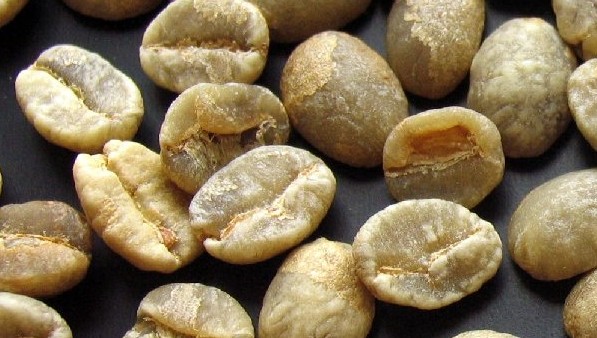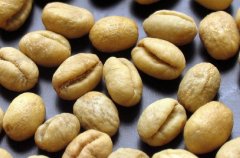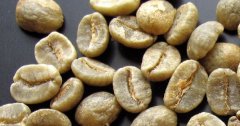Well-known coffee raw beans introduce Kenyan coffee raw beans
Kenya Coffee Raw Bean Kenya AA green bean
Coffee entered Kenya in the 19th century, when Ethiopian coffee drinks were imported into Kenya through southern Yemen. But it was not until the early 20th century that the bourbon was introduced by the St. Austin Mission. Kenyan coffee is mostly grown at an altitude of 1500 to 2100 meters and is harvested twice a year. To ensure that only ripe berries are picked, people must tour the forest about seven times. Kenyan coffee is grown by small farmers. After they harvest the coffee, they first send the fresh coffee beans to the cooperative cleaning station. The washing station sends the dried coffee to the cooperative in the form of "parchment coffee beans" (that is, coffee beans covered with endocarp) to the cooperative ("parchment coffee beans" is the last state of coffee beans before peeling). All the coffees are collected together, and growers charge an average price according to their actual quality. This trading method generally works well and is fair to both growers and consumers.
Kenyan coffee is produced near the Kenyan Mountains in the central part of the country and is sometimes named after the capital Nairobi to guarantee its quality. Here beans are graded by size, the largest is AA, followed by An and B, and so on, which has nothing to do with the origin, so the quality and characteristics of beans with the same AA grade may be quite different. With the exception of dry mochas in Yemen and Ethiopia, most coffee on the African continent is washed. Due to the support of the state, Kenya's average standard of washed Arabica beans is very high and is handled very carefully. Good Kenya beans not only have the same strong sour wine as mocha, irritating both sides of the tongue, it even has the rich texture that mocha lacks, and it can best brew a balanced drink in African coffee. The Kenyan government takes the coffee industry very seriously, where it is illegal to cut down or destroy coffee trees.
Kenyan coffee buyers are world-class buyers of premium coffee, and no country can grow, produce and sell coffee on a continuous basis like Kenya. All coffee beans are first acquired by the Kenya Coffee Commission (coffee Board of Kaeya, or CBK), where they are identified, rated, and then sold at weekly auctions, which are no longer graded. The Kenya Coffee Commission only acts as an agent, collecting coffee samples and distributing them to buyers so that they can determine price and quality. The auction in Nairobi is for private exporters, and the Kenya Coffee Commission pays growers below the market price.
The best coffee grade is bean-shaped berry coffee (PB) (Pea berry beans), followed by AA++, AA+, AA, AB and so on. The fine coffee is shiny, delicious and slightly alcoholic. People in the coffee industry all think that Kenyan coffee is one of its favorite products, because Kenyan coffee contains every feeling we want from a good cup of coffee. It has wonderful and satisfying aromas, well-balanced acidity, well-proportioned particles and excellent fruit flavors. Baking method: deep taste: strong sour and fragrant, especially well received by "Kenya AA".

Important Notice :
前街咖啡 FrontStreet Coffee has moved to new addredd:
FrontStreet Coffee Address: 315,Donghua East Road,GuangZhou
Tel:020 38364473
- Prev

Introduction to Tanzania Coffee Raw Bean
Tanzania coffee green bean raw coffee beans from Tanzania most of the Tanzanian beans are grown in the Mr. Kilimanjaro and Mt mountains near the northern Kenyan border. The Meru area, often called "Clemangaro", is occasionally named after the distribution center Moshi or Arusha. In addition, on the south side of the border
- Next

Introduction to Colombian Coffee Raw Bean
Columbia Coffee Raw Bean Colombia coffee green bean Columbia Coffee is one of the few plain coffee sold in the world under the name of the country. In terms of quality, it has won praise unmatched by other coffee. The country is the world's largest exporter of Arabica coffee beans, while robusta coffee is rarely grown. It is also the world's largest washed coffee bean (Washed)
Related
- Detailed explanation of Jadeite planting Land in Panamanian Jadeite Manor introduction to the grading system of Jadeite competitive bidding, Red bid, Green bid and Rose Summer
- Story of Coffee planting in Brenka region of Costa Rica Stonehenge Manor anaerobic heavy honey treatment of flavor mouth
- What's on the barrel of Blue Mountain Coffee beans?
- Can American coffee also pull flowers? How to use hot American style to pull out a good-looking pattern?
- Can you make a cold extract with coffee beans? What is the right proportion for cold-extracted coffee formula?
- Indonesian PWN Gold Mandrine Coffee Origin Features Flavor How to Chong? Mandolin coffee is American.
- A brief introduction to the flavor characteristics of Brazilian yellow bourbon coffee beans
- What is the effect of different water quality on the flavor of cold-extracted coffee? What kind of water is best for brewing coffee?
- Why do you think of Rose Summer whenever you mention Panamanian coffee?
- Introduction to the characteristics of authentic blue mountain coffee bean producing areas? What is the CIB Coffee Authority in Jamaica?

